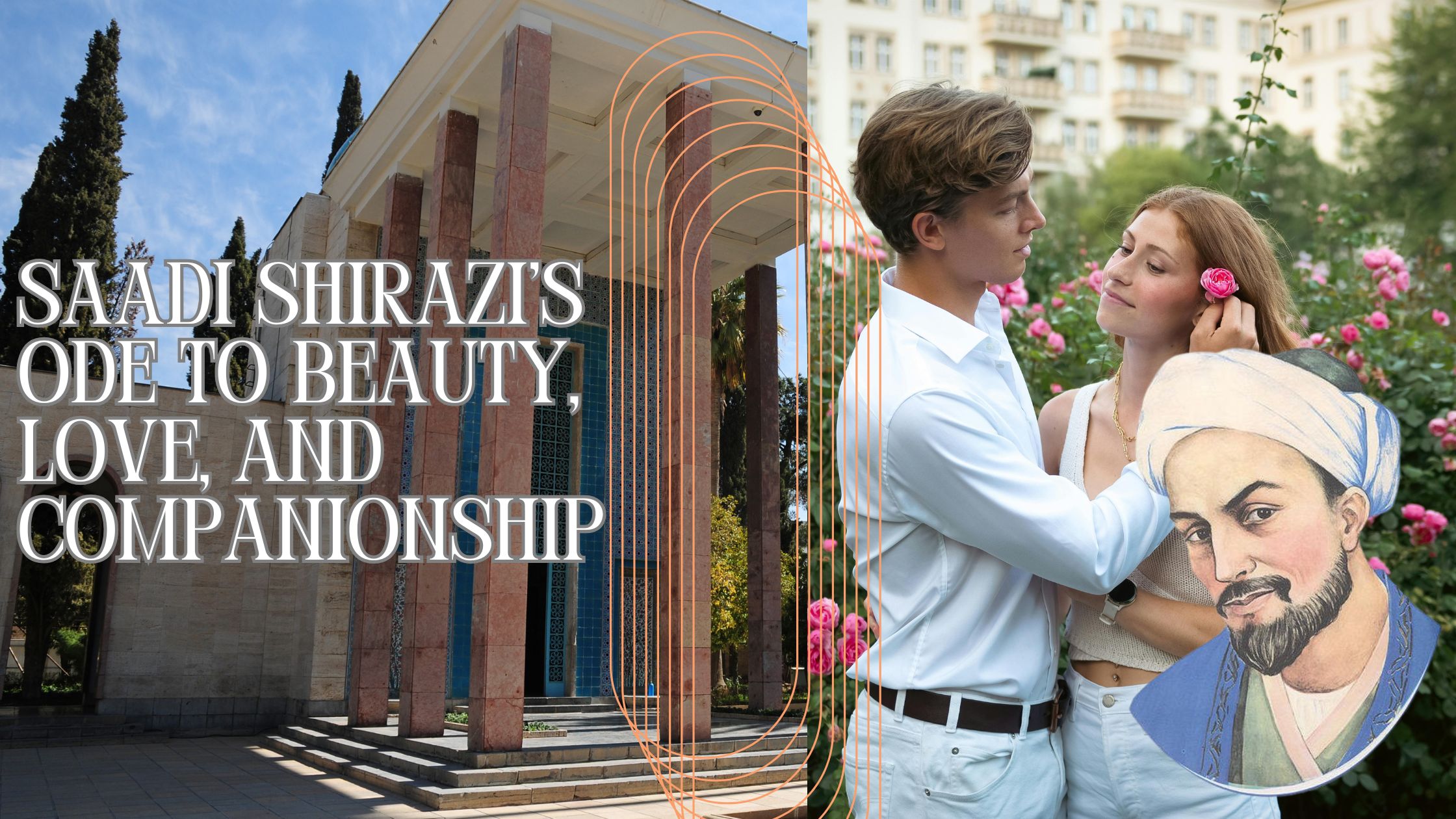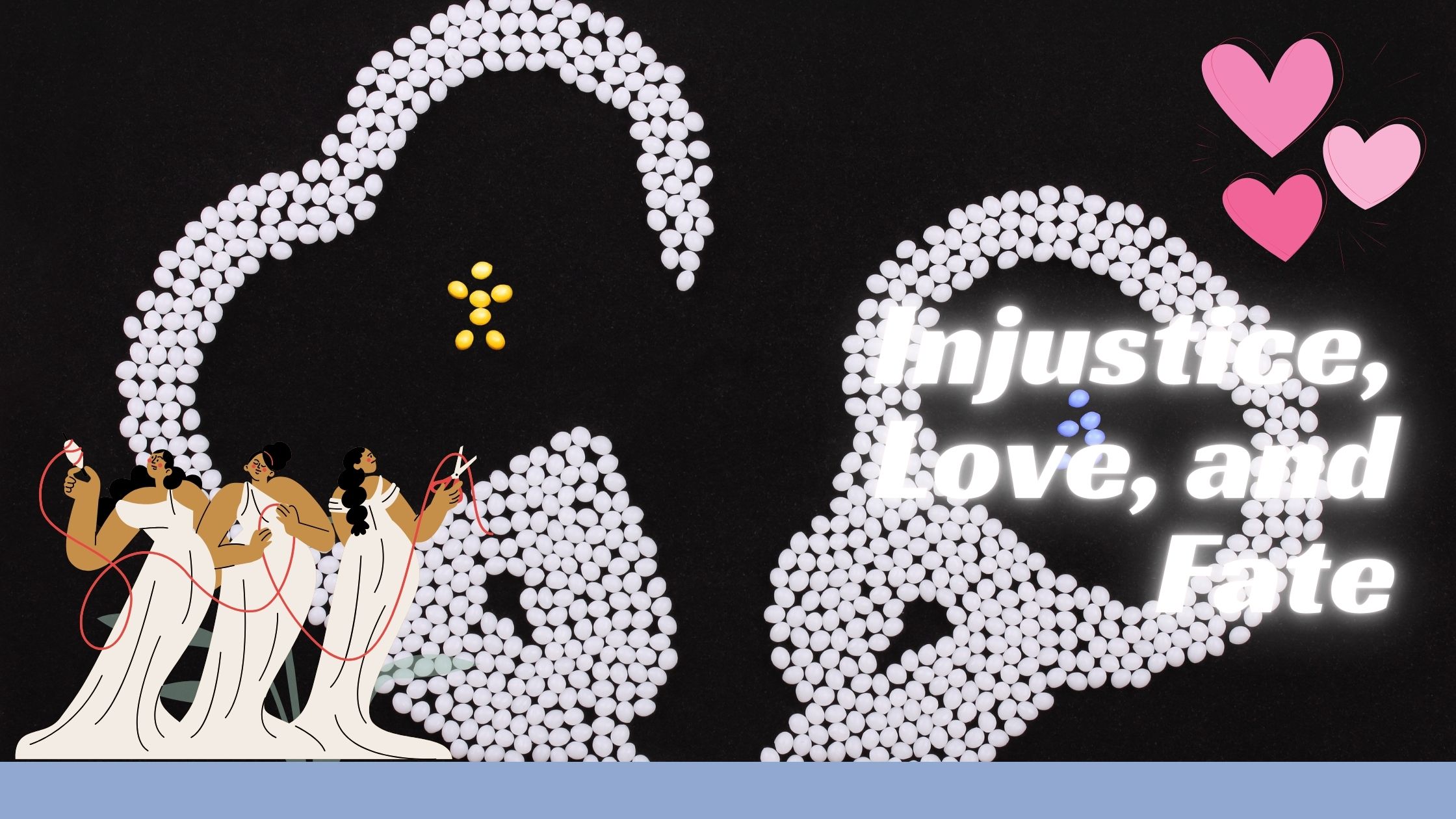Exploring the themes of love, longing, and the joy of connection in Saadi’s timeless poetry
Introduction
Saadi Shirazi, the master of Persian literature, has enchanted readers for centuries with his heartfelt verses and deep understanding of human emotions. His poems are often a celebration of love, beauty, and the profound joys of companionship. The following ghazal is one such masterpiece, where Saadi effortlessly intertwines sensory imagery with reflections on love and life:
Original Persian Poem
چشمت خوش است و بر اثر خواب خوشتر است
طعم دهانت از شکر ناب خوشتر است
زنهار از آن تبسم شیرین که میکنی
کز خندهٔ شکوفهٔ سیراب خوشتر است
شمعی به پیش روی تو گفتم که برکنم
حاجت به شمع نیست که مهتاب خوشتر است
دوش آرزوی خواب خوشم بود یک زمان
امشب نظر به روی تو از خواب خوشتر است
در خوابگاهِ عاشقِ سر بر کنارِ دوست
کیمخت خارپشت ز سنجاب خوشتر است
زان سوی بحر آتش اگر خوانیم به لطف
رفتن به روی آتشم از آب خوشتر است
ز آب روان و سبزه و صحرا و لالهزار
با من مگو که چشم در احباب خوشتر است
زهرم مده به دستِ رقیبانِ تندخوی
از دست خود بده که ز جُلّاب خوشتر است
سعدی دگر به گوشهٔ وحدت نمیرود
خلوت خوش است و صحبت اصحاب خوشتر است
هر باب از این کتاب نگارین که برکنی
همچون بهشت گویی از آن باب خوشتر است
English Translation
Your eyes are beautiful, and in the traces of sleep, even lovelier,
The taste of your lips surpasses the finest sugar’s flavor.
Beware of that sweet smile you so casually bestow,
For it outshines even the laughter of a dewy blossom.
I thought to replace the candle before your face,
But there is no need, for moonlight is far more pleasing.
Last night, I wished for the luxury of peaceful sleep,
Tonight, gazing upon your face is more soothing than dreams.
In a lover’s bed, resting beside their beloved,
The coarse fur of a porcupine feels softer than sable.
If summoned kindly from across a sea of fire,
I’d rush toward the flames, for they feel sweeter than water.
Do not speak to me of flowing streams, meadows, or blooming fields,
For to gaze upon friends is far more delightful.
Do not give me poison through the hands of harsh rivals;
If from your hands, even poison surpasses rose syrup.
Saadi no longer seeks solitude in a quiet corner,
Solitude is sweet, but the company of companions is sweeter.
Every chapter of this adorned book you may open,
It feels like paradise, yet each chapter is sweeter still.
Themes and Reflections
Saadi’s poetry is a treasure trove of profound insights wrapped in the beauty of language. This ghazal delves into several key themes that resonate with readers across cultures and times:
1. The Overwhelming Power of Love
Saadi paints a picture of a love so consuming that it redefines the world around him. From the beauty of the beloved’s eyes and smile to the very experience of companionship, love becomes a lens through which everything is measured. The poet finds joy not in solitude or nature’s splendor but in the company of those he cherishes.
2. The Sweetness of Companionship
In lines like "Solitude is sweet, but the company of companions is sweeter," Saadi reminds us of the value of human connection. The love and warmth of friends and loved ones are placed above even the most idyllic landscapes.
3. The Transcendence of Sacrifice in Love
Saadi’s readiness to cross a sea of fire or accept poison from the beloved’s hands highlights the sacrifices one is willing to make in love. These hyperbolic yet relatable images illustrate love’s capacity to transform pain into pleasure when it is for someone deeply cherished.
Imagery in Saadi’s Poetry
Saadi’s mastery lies in his use of vivid sensory imagery. His descriptions engage all the senses:
- Visual Beauty: The beloved’s eyes and smile are likened to moonlight and the laughter of blossoms.
- Taste and Touch: The lips taste sweeter than sugar, and even the harshest textures feel soft in the presence of love.
- Contrasts: Saadi contrasts fire and water, poison and rose syrup, to emphasize the transformative power of love and companionship.
Relevance Today
Saadi’s wisdom remains as relevant today as it was centuries ago. In a world that often prioritizes independence and solitude, Saadi’s poetry is a gentle reminder of the joy found in connection. It urges us to cherish those who bring light to our lives and to embrace the sweetness of love and friendship.
Historical Context on Saadi Shirazi
Saadi Shirazi (1210–1292 CE), often referred to as the “Master of Speech,” was one of the greatest poets of classical Persian literature. Born in Shiraz, Iran, Saadi’s life was shaped by his extensive travels and deep spirituality. His poetry reflects the wisdom he gained from witnessing the diversity of human experiences, blending profound philosophical insights with delicate expressions of love and beauty.
Saadi’s two most celebrated works, the Gulistan (The Rose Garden) and the Bustan (The Orchard), are revered globally for their timeless moral lessons and lyrical beauty. His ghazals, such as the one translated above, often focus on love, companionship, and the interplay of the physical and the spiritual.
In the context of this particular ghazal, we see Saadi’s remarkable ability to elevate simple emotions like admiration and longing into universal truths about human connection. His words transcend time and culture, resonating as deeply with readers today as they did in his own era.
Personal Reflections
Reading this poem brings to mind the universality of love’s language. The imagery Saadi uses is not only poetic but deeply relatable. Who among us hasn’t felt that a single glance from a loved one can brighten an entire day, or that their absence turns even the most beautiful surroundings dull?
For me, Saadi’s work speaks to a kind of love that isn’t bound by superficiality—it’s the kind of love that transforms the mundane into the extraordinary. His readiness to embrace fire or hardship for the beloved is an exaggerated yet poignant reflection of how love reshapes our priorities and perceptions.
In today’s world, where relationships can sometimes feel fleeting or transactional, Saadi reminds us of the depth and devotion that love is capable of. His ability to make even hardship sound sweet when faced with the presence of love is a perspective we can all benefit from in our personal lives.
A Modern Takeaway
Saadi’s poetry invites us to slow down and appreciate the beauty in our relationships. In a fast-paced, digitally connected world, the moments of genuine human connection—the warmth of a shared laugh, the sweetness of a kind word—are what truly matter.
For me, this poem also emphasizes gratitude. It’s easy to take the presence of loved ones for granted, but Saadi’s verses remind us that their companionship is sweeter than even the finest of life’s pleasures.
A Personal Note on Saadi’s Influence
Growing up in a small village in Iran, I often heard Saadi’s verses recited during family gatherings. These moments weren’t just about poetry; they were about connection. Saadi’s words became a bridge between generations, teaching values of love, patience, and humanity.
Even now, as I work across fields ranging from agriculture to software, I find myself returning to Saadi’s works for inspiration. They ground me in the timeless truths of life while reminding me of the rich cultural heritage that shapes my identity.
Conclusion
Saadi Shirazi’s ghazal is a celebration of beauty, love, and the irreplaceable value of human relationships. It teaches us that true happiness lies not in material comforts or solitary pursuits but in the warmth of a shared smile, a kind word, and the presence of loved ones.
As you reflect on Saadi’s verses, ask yourself: Who are the people that bring light into your life? How can you, in turn, bring sweetness and joy into theirs?
Let Saadi’s timeless wisdom inspire you to treasure the moments of connection and love that make life truly beautiful.





